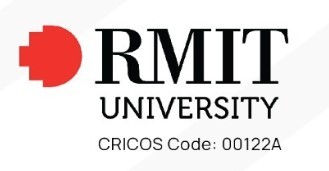
Master of Urban Planning and Environment


Overview
FULL-TIME 2 YEARS
YES
AU$36,480
FEBRUARY, JULY
Combining studies in urban planning and built environment with the social, economic and political environment, the Master of Urban Planning and Environment equips you to shape efficient, practical, healthy and sustainable cities.
Develop skills in critical analysis and draw from diverse sources to engage in professionally-relevant projects, conduct research, and promote effective policy outcomes. Benefit from practical and experiential learning, working on urban planning problems in the field, and consulting with industry.
This degree is widely supported by industry; the majority of urban planners in Victoria are RMIT alumni, and employers actively seek our urban planning and environment graduates for their unique combination of environmental science and policy skills.
Upon graduation, you will be eligible for membership of the Planning Institute of Australia.
This degree is offered online and face-to face. It is primarily taught through evening classes during the week, with some topics delivered through intensive full-day workshops. All core topics and some electives are also offered online in case students aren’t able to study face-to-face.
Inquire Now
Career
Start a fulfilling career doing something that really matters.
You’ll shape urban environments and impact lives as an urban planner, environmental manager or policymaker, and you will drive positive changes in resource management, and strategic and social planning.
Upon graduation, you might find work in:
strategic and statutory planning
environmental and social planning
state government planning and policy agencies
infrastructure providers
environmental and natural resource agencies
Commonwealth environmental and infrastructure agencies
international and local consulting firms
local government
conservation, environmental and community sectors
business and industry.
This is a career-oriented degree, with some students who are already working in the field. Planning practitioners often participate in the degree as guest lecturers.
There will be opportunities to develop professionally through shared knowledge and networks, and you can find related employment after, or even before, graduating.
Entry requirement
To study this course you will need to complete one of the following English proficiency tests:
IELTS (Academic): minimum overall band of 6.5 (with no individual band below 6.0)
TOEFL (Internet Based Test - IBT): minimum overall score of 79 (with minimum of 13 in Reading, 12 in Listening, 18 in Speaking and 21 in Writing)
Pearson Test of English (Academic) (PTE (A)): minimum score of 58 (with no communication band less than 50)
Cambridge English: Advanced (CAE): minimum of 176 with no less than 169 in any component.
Popular Courses
Find your perfect course
Head Office
Kamaladi, Kathmandu
Tel: +977 14542781, 9845566225
E-mail: info@landmarkedu.com
Sydney office
46 Macquarie Street,
Parramatta, NSW
Tel: +61 415 122 814
Branch office
Tel: 056-590825
Tel: 021-590828
Tel: 977-71-591694
